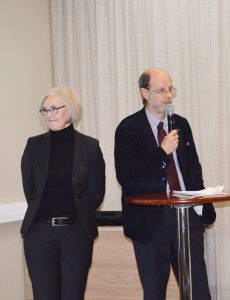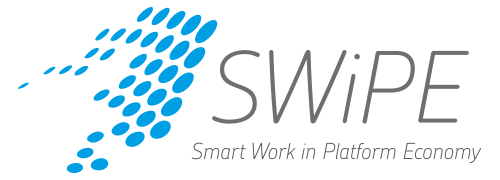The Working Life 2020 seminar on the 8th of November looked at questions ranging from what we know – and don’t know – about platform economy and crowdsourced work phenomena, how work and working life are changing, what effects these shifts might have on our society, and finally, how Finland ought to respond.
The platform economy and crowdsourced work are spreading rapidly. However, we still have rather little research about the phenomena, and while or now, only a few make their living solely from platform based work. However, in our society there is a clear need to set rules of the game for platform based work.

“Only few work in the platform economy every day. Indeed, most people doing this type of work are looking to supplement their income from other sources, not as their sole source of employment.” Says Tuomo Alasoini who organised the seminar together with SWiPE researcher Mervi Hasu from the Finnish institute of Occupational Health (FIOH). According to Alasoini, research shows that in the UK, the Netherlands and in Sweden only about 11-12% of the working age population have done platform work.
SWiPE is the first major research project in Finland looking at broad shifts in work and entrepreneurship. SWiPE resesarcher Laura Seppänen from FIOH together with Juho Salminen, who studies crowdsourced work, contributed their perspective of the multidimensional nature of crowdsourced and platform work. For now, crowdsourced work remains a means to supplement income.
Leila Kurki from the Finnish Confederation of Professionals (STTK) and Merru Tuliara from the Private Employment Agencies’ Association (HPL) called for urgent action to deliver clear gudelines for the legal position of customers, platform firms and platform workers.
The seminar also touched upon the concept of a basic income, and how platform work might be a way to supplement basic income. The seminar also featured conversation about whether a third category should be created in between employees and the self-employed for those doing crowdsourced work.
In their concluding remarks both Mervi Hasu and Tuomo Alasoini emphasised the need to improve, through research, the Finnish knowledge base surrounding crowdsourced work and to begin a broad, national conversation about how Smart Platform work can become a new source of competitive advantage for Finland.
Present at the seminar were two Finnish cowdsourced work platforms; Microtask Oy and Solved Oy.
